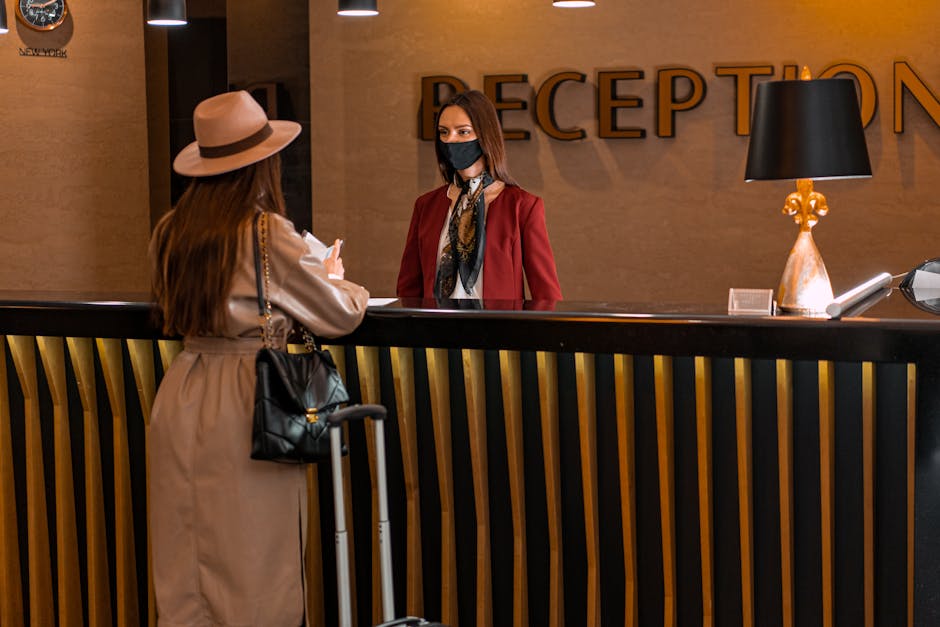The global health crisis of 2020-2022, commonly referred to as the pandemic, undeniably reshaped the world in profound ways. Amongst these transformations, the travel and tourism industry faced unprecedented disruption, forcing businesses and individuals to adapt to a new normal. While the recovery continues, a pivotal question lingers: did this period permanently alter the industry’s trajectory, or is it simply a temporary setback from which it will rebound? A comprehensive analysis suggests that the changes wrought by the pandemic are not fleeting but represent a profound shift in consumer expectations, business models, and industry dynamics.
The initial impact was immediate and devastating. Lockdowns, travel restrictions, and fear of contagion crippled air travel, hotel occupancy, and the broader tourism ecosystem. A tsunami of cancellations and financial losses swept through the sector. Smaller businesses, often those relying on seasonal or niche tourism, found themselves particularly vulnerable. This period illuminated the fragility of a global industry interwoven with complex supply chains and heavily dependent on international mobility.
However, the crisis also sparked resilience and innovation. A key observation is the accelerated adoption of digital technologies. Remote work and digital communication tools, previously supplementary to the industry, became essential components of the new landscape. This transition facilitated new forms of virtual tours, online bookings, and remote customer service interactions. The pandemic forced a rapid digitalization that might otherwise have unfolded over decades. Tourism businesses that embraced this shift proved to be more adaptable and resilient in the face of crisis.
This digitization isn’t just about convenience; it’s reshaping the very nature of travel experiences. Consumers, having experienced limitations on physical movement, are now more attuned to experiences that cater to unique needs and preferences. The demand for authentic, personalized, and curated travel itineraries is escalating, leading to a rise in experiential tourism and smaller-scale operators. Boutique hotels, local tour guides, and independent accommodations now enjoy increased visibility and appeal to a clientele seeking immersive, less commercialized destinations.
Consumer behaviour has evolved in other profound ways, too. The pandemic revealed a heightened awareness of health and safety protocols. This heightened focus on hygiene, safety, and responsible travel will likely continue to influence travel choices. Demand for flexible booking options, cancelation policies, and transparent health and safety measures has increased, making businesses that embrace these changes more attractive to a conscious traveller. Moreover, the pandemic underscored the importance of sustainability and environmental consciousness. Conscious travellers are increasingly seeking out eco-friendly destinations, responsible tourism practices, and businesses committed to minimizing their environmental footprint.
While the focus often rests on consumer changes, the industry’s internal adjustments are equally important. Many large corporations had to dramatically rethink their supply chains and operational models. Reduced reliance on mass tourism and a greater emphasis on local economies are becoming crucial. The pandemic forced tourism businesses to consider resilience and diversification, moving away from a model heavily reliant on a few key markets. Strategic partnerships with local communities and smaller businesses are emerging as crucial for the industry’s long-term sustainability.
The emergence of sustainable and responsible tourism is another vital aspect of this altered landscape. Consumers are now more actively involved in assessing the environmental and social impact of their travel choices. Businesses are responding to this evolving demand, implementing strategies for reducing their carbon footprint, supporting local communities, and promoting environmentally conscious practices. A significant shift towards greener accommodations, eco-friendly transport, and minimized waste is evident. This represents a positive development for the environment and the long-term health of the travel and tourism industry.
An integral part of this evolution is the growth of remote-work travel. Individuals seeking a mix of work and play now favour destinations that cater to this blend of productivity and relaxation. Accommodation providers and local businesses now need to accommodate the needs of this increasingly mobile and potentially more transient market. This new hybrid form of travel, potentially requiring flexible workspaces and connectivity, is reshaping expectations and driving demand in particular niche areas.
The future of travel and tourism, therefore, is not merely a rebound to pre-pandemic norms. Instead, it signifies a fundamental shift towards a more nuanced, personalized, and conscious approach to travel. The demand for unique experiences, eco-friendly options, and accessible destinations is gaining momentum, suggesting a significant re-evaluation of the industry’s priorities.
A final consideration involves the long-term implications of the pandemic’s impact on investment and employment in the sector. The recovery phase presents opportunities for investment in sustainable infrastructure, digital technologies, and innovative tourism models. However, sustained job creation in the travel sector remains a crucial challenge that requires proactive measures to train and upskill the workforce, as well as stimulate investment in local economies.
In conclusion, the pandemic’s impact on the travel and tourism industry is profound and multifaceted. While the industry recovers, it does so with a new set of parameters. The desire for personalization, sustainability, and digital innovation is undeniable and will likely shape future offerings and operations. The industry’s resilience will be measured not just by its ability to recover but also its capacity to adapt and innovate in the face of these enduring changes. The pandemic served as a catalyst for a significant transformation, shaping a more mindful, sustainable, and digitally-driven future for the travel and tourism sector.












